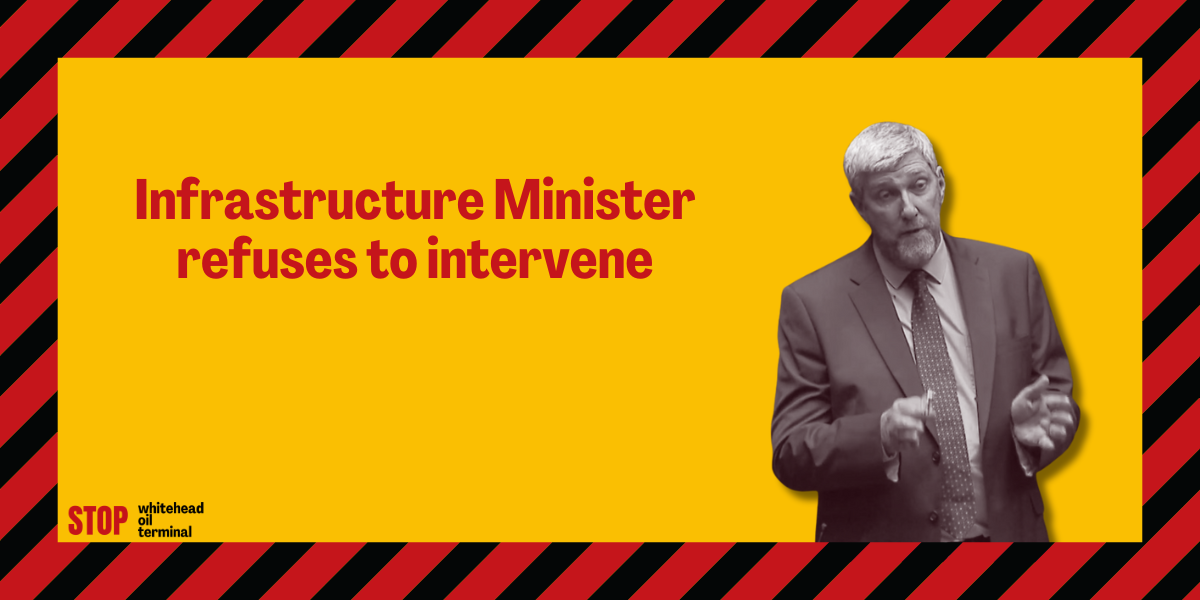· 3 min read
Infrastructure minister refuses to intervene in controversial Oil Terminal

Campaigners have branded John O’Dowd’s decision to ignore the regional implications of a proposed new major oil terminal near Whitehead as shocking. O’Dowd, Minister for Infrastructure, decided yesterday (27/3/24) not to ‘call in’ (scrutinise) the decision made by Mid and East Antrim Council, which provisionally approved the application for a new oil terminal at Cloghan Point, on the grounds that it has no regional implications. In a letter on behalf of the minister, Dr Katherine McFerran, Acting Director of Planning, states that the application “does not raise issues of such importance that their impact is considered to extend to a sub-regional or regional level.” Hundreds of people lodged objections to this application.
Members of the Stop Whitehead Oil Terminal campaign are struggling to understand how this decision aligns with broader Government’s objectives. Hilary McCollum of the campaign said, “We know that fossil fuel use is driving climate change. The Climate Change (NI) Act 2022 places a legal obligation on Government departments to reduce greenhouse gas emissions by 48% by 2030, and achieve net zero by 2050. Increasing fossil fuel imports flies in the face of this.” With the farming industry already promised a slower rate of transition to carbon neutral, other sectors need to increase their efforts.
Huge supertankers, similar in size to the one that recently crashed into and collapsed the Baltimore Francis Scott Key Bridge, will unload highly flammable fossil fuels at the major import and distribution facility at Cloghan Point. The site is outside the jurisdiction of the Belfast Harbour Commissioners. Smaller sea tankers will take the fuels to seaports across Britain and Ireland.
The development threatens the ecosystems of Belfast Lough and adjacent coastal areas in counties Antrim and Down. The lough is home to numerous seabirds, including UK red list species, as well as marine life. An oil spill or explosion would have significant impacts on Belfast Lough and beyond.
The terminal will generate an additional three hundred road vehicle movements travelling to and from the site every day – one every three minutes. Most will be HGV oil tankers, creating air and noise pollution as well as impacting on other road users. The road tankers will exacerbate the existing traffic bottleneck at the York Street interchange in Belfast, and will likely travel much further than this.
Three schools are situated along the route the road tankers will take. The Royal College of Paediatrics and Child Health has identified the climate crisis as a major threat to the health and wellbeing of children and young people. They urge “all four UK Governments to make child health central to all policy development”, to mitigate and adapt against the unequal impact of climate change on children and young people’s health in the UK (17/10/23).
McCollum said “Northern Ireland already has four oil terminals. There is no strategic or practical need for another one, the region is already well supplied. At a time of climate crisis, we need to be reducing fossil fuel imports, not increasing them.” Campaigners pledge to continue their fight to stop the development, through all available channels.
Statement from Stop Whitehead Oil Terminal campaign, 28/03/24